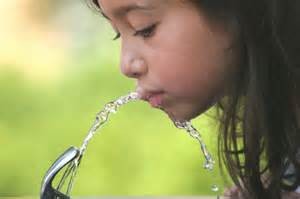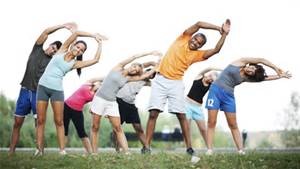 We typically think of healthy diets when we’re dealing with a health issue, but the reality is that a healthy lifestyle is an excellent practice for anyone at any age. Our bodies require different nutrients as we age, so what we put in our bodies and how we take care of it are important. For instance, think of toddlers. We are encouraged to make sure our toddlers drink milk, and eat lots of fruits and vegetables. We are told that older individuals should watch their calcium, because of osteoporosis. But, what about all the years in between?
We typically think of healthy diets when we’re dealing with a health issue, but the reality is that a healthy lifestyle is an excellent practice for anyone at any age. Our bodies require different nutrients as we age, so what we put in our bodies and how we take care of it are important. For instance, think of toddlers. We are encouraged to make sure our toddlers drink milk, and eat lots of fruits and vegetables. We are told that older individuals should watch their calcium, because of osteoporosis. But, what about all the years in between?
Here are some ideas on how to stay healthy regardless of the birthday milestone:
Eat and drink well.  Eat a colorful diet full of a variety of vegetables, fruits, whole grains, and lean meats, and drink your water. If you take good care of your body, it will take good care of you. Try to avoid refined sugars and processed foods. Indulge, in moderation, and enjoy what you eat. Here are more ways colorful foods are beneficial. Check out the great nutrition resources for all ages including older adults on www.choosemyplate.gov.
Eat a colorful diet full of a variety of vegetables, fruits, whole grains, and lean meats, and drink your water. If you take good care of your body, it will take good care of you. Try to avoid refined sugars and processed foods. Indulge, in moderation, and enjoy what you eat. Here are more ways colorful foods are beneficial. Check out the great nutrition resources for all ages including older adults on www.choosemyplate.gov.
 Be mindful of how our nutrient needs change as we age. As I mentioned above, our children need to make sure they have a diet rich in vitamins and minerals, avoiding refined and processed foods, to build strong bodies. This is also important for teenagers. As young adults, we need to make sure we are engaging in healthy practices with alcohol, limiting intake to 1 drink a day for women and 1-2 drinks per day for men, and creating healthy behaviors with foods, which we can carry forward as we age. Older individuals need to make sure they have their Vitamin D level and calcium intake checked, due to their increased risk of osteoporosis and brittle bones. Americans tend to have low Vitamin D, so have your levels checked during the summer and colder months with less sun.
Be mindful of how our nutrient needs change as we age. As I mentioned above, our children need to make sure they have a diet rich in vitamins and minerals, avoiding refined and processed foods, to build strong bodies. This is also important for teenagers. As young adults, we need to make sure we are engaging in healthy practices with alcohol, limiting intake to 1 drink a day for women and 1-2 drinks per day for men, and creating healthy behaviors with foods, which we can carry forward as we age. Older individuals need to make sure they have their Vitamin D level and calcium intake checked, due to their increased risk of osteoporosis and brittle bones. Americans tend to have low Vitamin D, so have your levels checked during the summer and colder months with less sun.
 Stay active. You don’t have to spend your life in a gym to feel young. Take walks. Travel. Garden. Try a yoga class. It’s not just about exercise, rather moving your body. See my previous blog on Zumba.
Stay active. You don’t have to spend your life in a gym to feel young. Take walks. Travel. Garden. Try a yoga class. It’s not just about exercise, rather moving your body. See my previous blog on Zumba.
 Keep strong bones. Our peak bone mass ends at the age of 30. After that, our bone mass decreases 1% every year as we age. This increases in women after menopause. Prevent this by participating in weight-bearing exercises and getting adequate nutrition. Both men and women should participate in some sort of strength training exercise, despite the age. See our previous blog on strong bones. Remember, certain medications can cause bone loss and you may need a bone density test earlier when on those medications.
Keep strong bones. Our peak bone mass ends at the age of 30. After that, our bone mass decreases 1% every year as we age. This increases in women after menopause. Prevent this by participating in weight-bearing exercises and getting adequate nutrition. Both men and women should participate in some sort of strength training exercise, despite the age. See our previous blog on strong bones. Remember, certain medications can cause bone loss and you may need a bone density test earlier when on those medications.
 Have a good network of friends. Associate yourself with happy, like-minded people. Your circle of friends is a great support system, so surround yourself with people who positively influence your life.
Have a good network of friends. Associate yourself with happy, like-minded people. Your circle of friends is a great support system, so surround yourself with people who positively influence your life.
 Get enough sleep. The average person needs 7-8 hours of sleep per night. Not getting enough sleep can contribute to weight loss struggles, irritability, and decrease in productivity. As we age, the amount of sleep we need decreases, but the quality of sleep stays the same. Make sure you are getting enough of those Zzzz’s.
Get enough sleep. The average person needs 7-8 hours of sleep per night. Not getting enough sleep can contribute to weight loss struggles, irritability, and decrease in productivity. As we age, the amount of sleep we need decreases, but the quality of sleep stays the same. Make sure you are getting enough of those Zzzz’s.
You’re only as old as you feel, so give yourself all the tools you need to feel the best you.
Here’s to healthy aging everyday and not just this September for Healthy Aging Month.